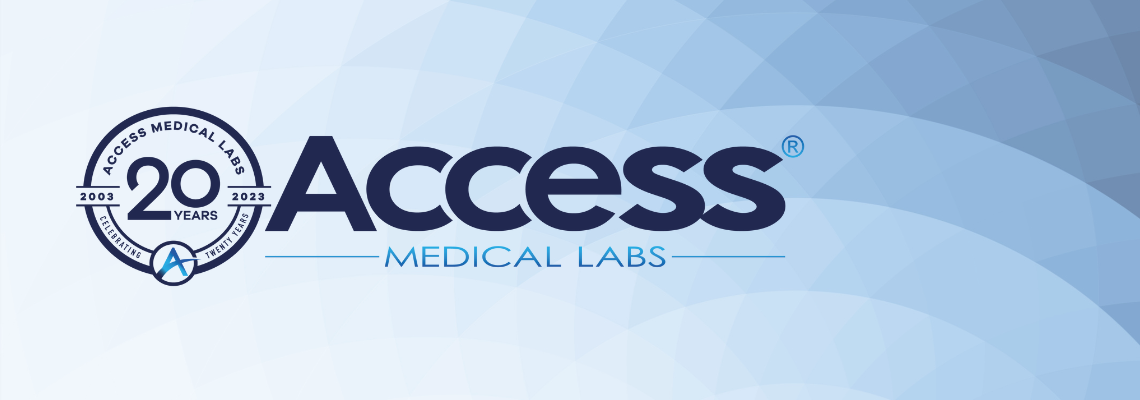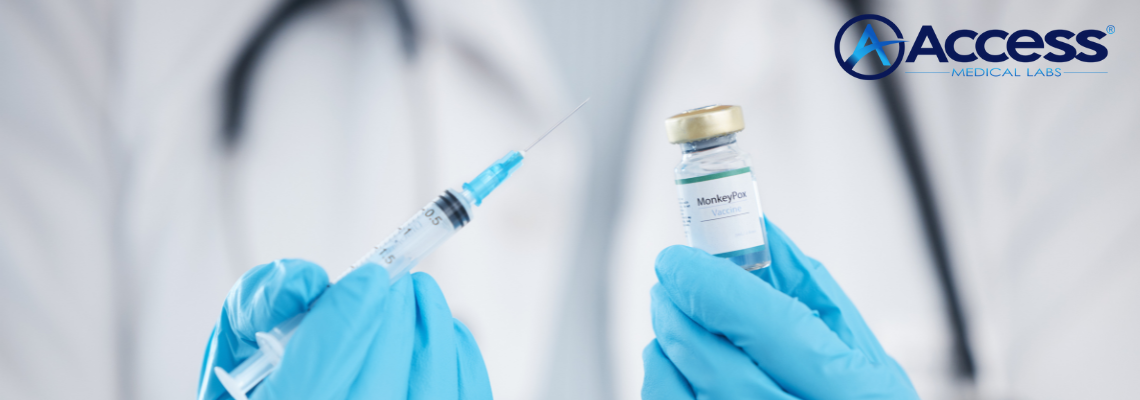
Photobiomodulation: What is it, and how does it affect health?
For centuries, light has been recognized for its vital role in health and wellness. Without the necessary spectrum of light, your patients’ mental, immune, and cellular health will be deeply—and dangerously—affected. Photobiomodulation (PBM) therapy utilizes the natural response to light as a way to improve overall health and wellness. Originally...Read More

A Guide to Toxic Metals from Exposure to Detoxification
Chronic toxicity has become the next insidious health crisis. Aluminum, arsenic, mercury, and other toxic metals pervade the environment, from our diet to our personal care products. Although toxicity is sometimes apparent, many signs and symptoms go unnoticed for extended periods of time. Its variable symptoms and widespread effects present...Read More

Access Medical Laboratories Celebrates 20th Anniversary
Access Medical Laboratories is proud to celebrate its 20th anniversary as the leaders in the diagnosticlaboratory space. When opening its doors in 2003, our founders had a vision of creating a lab that iscutting-edge and introducing a service that is unparalleled to any other lab in existence. Throughdiligence, hard work...Read More

Updated Mammogram Guidelines
Revised breast cancer screening guidelines from the U.S. Preventive Services Task Force recommend starting mammograms at age 40 for women, emphasizing the importance of early detection. The updated guidelines take into account the rising incidence of breast cancer in younger women and aim to improve outcomes through early diagnosis, according...Read More

Mpox Health Emergency Ends
The World Health Organization (WHO) has announced that Mpox (monkeypox) is no longer considered a global health emergency. This declaration has important implications for physicians who may encounter cases of Mpox in their practice. While Mpox remains a concern, the decision to downgrade its status reflects improved global efforts in...Read More

Possible Breakthrough in Alzheimer Research
A recent study published in Nature Medicine has shed light on the potential protective role of the Reelin gene against Alzheimer’s disease. The findings reveal that individuals with a specific variant of the Reelin gene may have a reduced risk of developing Alzheimer’s. This discovery could have significant impacts for...Read More

Exercising for at Least 30 Minutes a Day Improves Sleep Quality
The importance of good sleep cannot be overstated. It is an essential aspect of our overall well-being affecting our physical health, mental health, and cognitive function. In order to achieve optimal sleep, there are a number of factors to consider, such as diet, lifestyle, and exercise habits. A recent study...Read More

Heart Shape May Affect Heart Disease Risk
A new study from Stanford Medicine has revealed that the shape of a person’s heart could affect their risk of developing heart disease. The study, which analyzed data from over 17,000 individuals, found that those with a more rounded heart shape had a higher risk of developing heart disease than...Read More

How Artificial Intelligence (A.I) Could Change the Patient Experience
In recent years, artificial intelligence (AI) has been increasingly used in healthcare to improve patient care and experience. One example of this is AI chatbots, like ChatGPT or Jasper, but there are concerns about their potential impact on the patient-provider relationship. According to an article in Fox News, AI-based chatbots...Read More

Detoxifying in a Toxic World: How to Combat Environmental Toxins
Our world is changing. In the past 75 years, dozens of newly introduced chemicals have overrun the environment with a range and intensity never seen before. The food and water we consume, the air we breathe, and the body care products that we use are often tainted with potential toxins....Read More